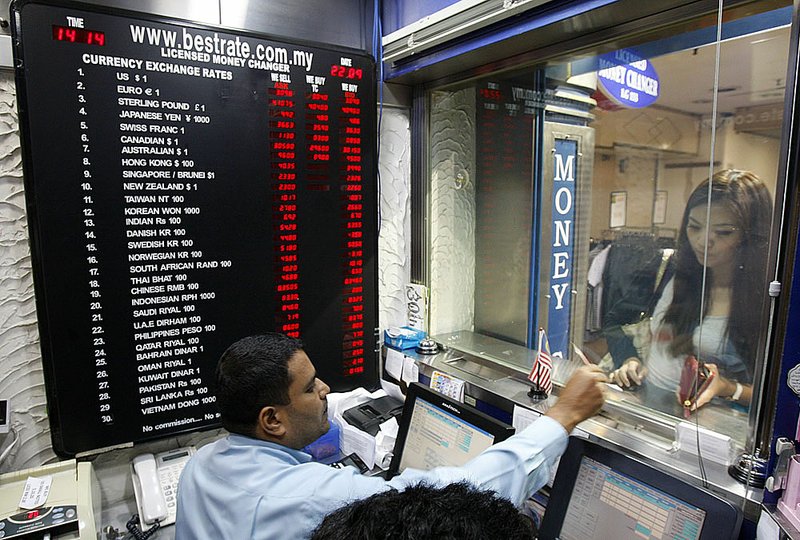KUALA LUMPUR, Malaysia — Malaysia is studying the possibility of letting its currency trade freely overseas, officials said Tuesday while playing down the prospect of immediate changes.
The ringgit was banned from offshore trading in 1998 as part of capital controls to ward off speculators and lift the country out of the East Asian financial crisis. All other curbs have since been lifted.
“We have an open mind ... it is still under study. We don’t have any specific time frame. We will look at it indepth,” Prime Minister Najib Razak, who is also finance minister, told reporters.
The ringgit has been nearing a 13-year high of 3.10 to the dollar in the past week amid talk that the government may further liberalize offshore trading after it relaxed curbs on the ringgit for trade-related transactions in August. The ringgit’s gains have largely been driven by recent increases in interest rates.
Central bank Governor Zeti Akhtar Aziz said the ringgit has appreciated by 10 percent against the dollar this year but remained stable against other regional currencies.
She indicated the ringgit won’t be fully liberalized any time soon amid shaky global financial markets. Malaysia also needs to develop a more vibrant foreign-exchange market to ensure a stable currency, she said.
“We are well aware of the risks ... we are not going to rush,” she said.
“We need stable international financial conditions before we venture there. We would not do anything that would destabilize the real sectors. Our ultimate policy is to ensure our economy remains vibrant and proceed on a sustainable growth path.”
Malaysian manufacturers have also opposed removing the ban, warning it could attract short-term hot money that pushes the currency higher and makes Malaysia’s exports less competitive overseas.
AmResearch in a report said the ringgit internationalization would depend on a steady and stable economic environment, a stronger banking system and healthy balance of payment position.
“Although current fundamentals may point toward a healthier situation, we still do not see this will be the right time yet, especially given the fragile recovery,” it said.
Business, Pages 25 on 09/23/2010
